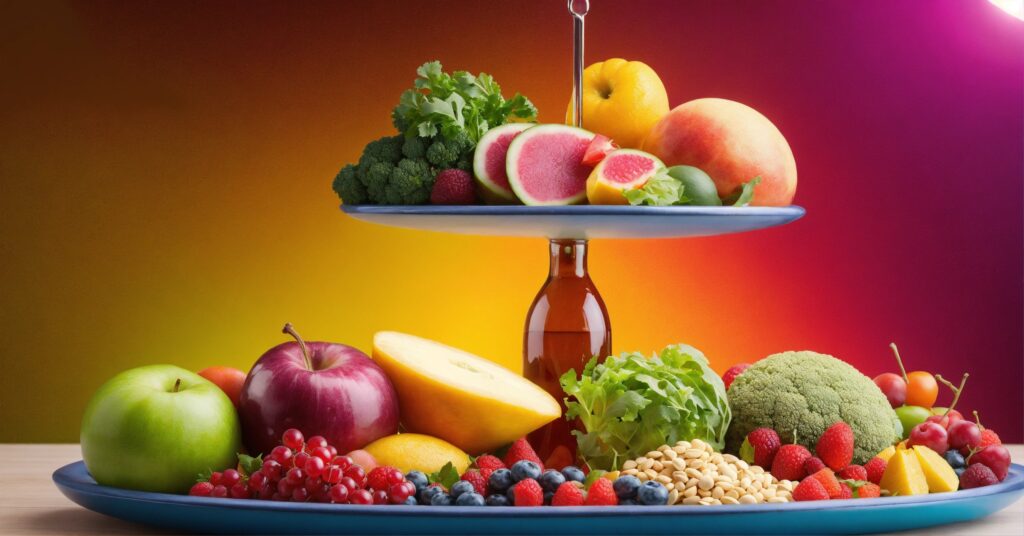Aging is a natural process, but wouldn’t it be amazing if we could age gracefully while maintaining our health and vitality? The secret may lie in what we eat. An anti-aging diet can play a significant role in slowing down the visible and internal effects of aging. Let’s dive into the foods that can help you stay youthful inside and out.
What is an Anti-Aging Diet?
An anti-aging diet focuses on nutrient-dense foods packed with vitamins, minerals, antioxidants, and healthy fats that combat oxidative stress, reduce inflammation, and support cellular repair. These foods can improve skin elasticity, boost energy levels, and protect against chronic diseases.
Why Diet Matters in Aging
The food we consume directly impacts our cells, tissues, and overall health. Diets rich in processed foods, sugars, and unhealthy fats accelerate aging by promoting inflammation and oxidative stress. On the other hand, whole, natural foods nourish your body and help maintain its youthful function.
Key Foods for an Anti-Aging Diet
1. Berries: Nature’s Antioxidant Powerhouses
Berries like blueberries, strawberries, and raspberries are loaded with antioxidants like vitamin C and flavonoids. These nutrients combat free radicals, reduce inflammation, and promote collagen production for firm, glowing skin.
2. Fatty Fish for Omega-3s
Salmon, mackerel, and sardines are rich in omega-3 fatty acids, which reduce inflammation, improve heart health, and keep your skin supple by maintaining its lipid barrier.
3. Leafy Greens: Nutrient-Dense Superfoods
Spinach, kale, and Swiss chard are packed with vitamins A, C, and E, as well as lutein and zeaxanthin. These nutrients protect skin from UV damage and promote cell regeneration.
4. Nuts and Seeds for Healthy Fats
Almonds, walnuts, flaxseeds, and chia seeds provide healthy fats, vitamin E, and protein. These support skin hydration, elasticity, and overall brain health.
5. Avocados: Creamy and Anti-Inflammatory
Avocados are a rich source of monounsaturated fats, potassium, and antioxidants. They keep skin moisturized and reduce inflammation in the body.
6. Green Tea for Anti-Aging Polyphenols
Green tea contains powerful antioxidants like catechins that protect cells from damage, improve skin health, and boost metabolism.
7. Bright-Colored Vegetables
Carrots, bell peppers, and sweet potatoes are high in beta-carotene and other carotenoids. These compounds enhance skin radiance and protect against sun damage.
8. Whole Grains for Sustained Energy
Brown rice, quinoa, and oats are rich in fiber, B vitamins, and antioxidants. These improve digestion, reduce inflammation, and support brain health.
9. Dark Chocolate (in Moderation)
Dark chocolate with at least 70% cocoa is full of flavonoids that improve blood flow, protect the skin, and promote heart health.
10. Probiotic-Rich Foods
Yogurt, kefir, and fermented foods like sauerkraut and kimchi improve gut health. A healthy gut can lead to better nutrient absorption and reduced inflammation.
Lifestyle Tips to Enhance Your Anti-Aging Diet
1. Stay Hydrated
Drinking plenty of water is essential for maintaining skin elasticity and flushing out toxins.
2. Limit Sugar and Processed Foods
Excess sugar binds to collagen, causing the skin to lose its elasticity. Processed foods often contain harmful fats and chemicals that speed up aging.
3. Eat the Rainbow
Consuming a variety of colorful fruits and vegetables ensures you get a wide range of antioxidants and nutrients.
4. Practice Portion Control
Overeating, even healthy foods, can lead to weight gain and stress the body’s metabolic processes.
5. Combine Diet with Exercise
A healthy diet paired with regular physical activity enhances its anti-aging benefits by improving circulation and reducing stress.
Anti-Aging Recipes to Try
Berry-Spinach Smoothie
- Ingredients: Handful of spinach, 1/2 cup blueberries, 1/2 banana, 1 cup almond milk, 1 tbsp chia seeds
- Instructions: Blend all ingredients until smooth. Enjoy as a nutrient-packed breakfast or snack.
Salmon and Avocado Salad
- Ingredients: Grilled salmon, 1/2 avocado, mixed greens, cherry tomatoes, olive oil, and lemon juice
- Instructions: Toss ingredients together and drizzle with olive oil and lemon juice. Perfect for a light lunch.
Conclusion
An anti-aging diet isn’t just about looking youthful; it’s about feeling vibrant and energetic at every age. By incorporating these nutrient-rich foods into your meals, you can take a proactive step toward better health and well-being. Remember, it’s never too late to start making positive changes.
This article is intended for informational purposes only and does not constitute medical advice. Please consult a healthcare professional before making significant changes to your diet or lifestyle.
FAQs
1. Can diet really slow down aging? Yes, a balanced diet rich in antioxidants, healthy fats, and vitamins can protect against cellular damage, reduce inflammation, and promote overall health, slowing the aging process.
2. How soon can I see results from an anti-aging diet? While some improvements like better skin hydration and energy levels may appear within weeks, long-term benefits like reduced risk of chronic diseases take consistent effort over months or years.
3. Are supplements necessary for anti-aging? While whole foods should be your primary source of nutrients, supplements like omega-3s or collagen can be beneficial if you have specific deficiencies.
4. What foods should I avoid for anti-aging? Avoid processed foods, sugary snacks, trans fats, and excessive alcohol, as they accelerate aging by promoting inflammation and oxidative stress.
5. Can exercise enhance the effects of an anti-aging diet? Absolutely! Regular exercise improves circulation, reduces stress, and boosts the effectiveness of a nutrient-rich diet.

